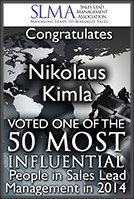World War I 100 Years Later: What Have We Learned?
This year marks the 100th anniversary of the outbreak of World War I. The causes of that great war are complex, but can be boiled down to the assassination of Archduke Franz Ferdinand, heir to the throne of the Austrian Empire, and his wife Sophie, at the hands of Gavrilo Princip, a Serbian nationalist. The assassination resulted in Austria-Hungary’s declaration of war against the Kingdom of Serbia, which was Russia’s ally. The war rapidly escalated into a global conflict because both the Austrian Empire and Russia had staunch allies which formed them into two super-powers. A third might be considered to be the US which didn’t publicly ally itself to either side; rather it declared war directly on Germany for targeting, with its submarines, England-bound American ships in the North Atlantic.

The Small Blue Thing
The leaders and soldiers that fought this war—at unbelievable cost to human life—were lacking many advantages we have today. Space travel is obviously one of them, and because of that they never saw a view that today all of us have seen:
Despite this view and its incredible significance, it appears that some of us still don’t grasp it—and the lessons of World War I have sadly still not been learned. We’re still waging war over comparatively tiny territories and their resources all located on this one diminutive globe. In addition to the Middle-Eastern crises we have seen since the turn of the millennium, in Russia today there is a political movement afoot to oppose American economic and military activity to every extent possible, while America continues to wage war in Afghanistan and impose sanctions over Russia’s threatened absorption of the Ukraine.
One Species
Take another look at this image. It is of a small blue planet located in the endless black, cold, vacuum void of space. Additional images from the Hubble telescope have allowed us to view the incomprehensible vastness of that space—and see that our planet, in relation to it, is infinitesimal, more so than the tiniest grain of sand.
This small blue planet contains but one intelligent species – human beings, striving to survive. Yet upon this miniscule spot in the infinite blackness of space, various leaders within this species still feel they must carve out inviolate borders to protect their microscopic portions of it. If certain world leaders of today had their way—and I’m not taking sides of any kind—the brand of death and destruction that brought the world to the brink of disaster between 1914 and 1918 would continue to be a threat until the end of time.
Consciousness
In addition to space travel, another advantage of the modern world is that the participants in WW I did not have is a consciousness of the worthlessness and destructiveness of war. This consciousness could not have existed in 1914; it has only evolved after not one, but two catastrophic world wars, plus several conflicts (most notably Vietnam) that resolved virtually nothing but left hundreds of millions of young men lying dead on the battlefield, many greatly confused as to what exactly they had been fighting for.
I have named the new project for my Pipeliner CRM product Kopernikus—the German spelling of Copernicus, the Polish mathematician and astronomer who, with the publication of his book On the Revolutions of the Celestial Spheres in 1543, proved that our solar system was heliocentric—that the Earth and other planets revolved around the Sun, not vice versa. I have chosen this name because we are now at a similar crossroads to Copernicus’s time—the separate factions on our planet must cease viewing themselves as separate from the human race. For they are clearly and factually not.
We have spoken here of world leaders and their inflicting of continual conflict over territory and resources. Meanwhile there are the rest of us—businesspeople and citizens of the modern world who factually bear the unwanted and often brutal brunt of such conflicts. For us, there is yet another advantage that our forefathers did not possess: the technology of the internet. And in my next blog in this series, I will discuss how the internet and web technology could very well be our saving grace.








Trackbacks & Pingbacks
[…] you taking positive action to make the world a better place? If so, fantastic. If not, I’m guessing you probably want to—it takes a pretty callous person […]
[…] mentioned in my previous blog post, this year marks the 100-year anniversary of the outbreak of World War I. At the conclusion of that […]
Leave a Reply
Want to join the discussion?Feel free to contribute!